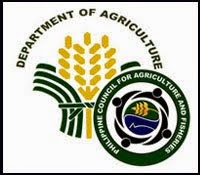DA Undersecretary and Chief of Staff Emerson Palad represented Agriculture Secretary Proceso Alcala in the said handover. AFMeC Chairperson Engr. George Canapi, Professional Regulation Commission-Board of Agricultural Engineering (PRC-BOAE) Chairperson and AFMeC Vice Chairperson Engr. Ariodear Rico, and AFMeC Technical Working Group on Research, Development and Extension Chairperson Joel Panagsagan were also part of the said undertaking.
The event was held in the presence of officials from DA, NAFC, PRC and Agricultural Machinery Manufacturers & Distributors Association, AFMeC members, representatives of DA Regional Agricultural Engineering Divisions from different regions, and members of the local media.
The AFMech Law, or Republic Act No. 10601 otherwise known as “An Act Promoting Agricultural and Fisheries Mechanization Development in the Country”, was signed into law by President Benigno Simeon Aquino III last June 5, 2013.
The new law mandates the promotion of the development and adoption of modern, appropriate, cost-effective and environmentally safe agricultural and fisheries machinery and equipment to enhance farm productivity and efficiency; provision of a conducive environment to the local assembling and manufacturing of engines and agri machinery and equipment; strengthening of the support services to farmers, fisherfolk and other stakeholders; and, unification and strengthening of the implementation and coordination activities and mechanisms on agricultural and fisheries mechanization programs and projects.
“This will help our government achieve food security and safety and increase the income of our farmers,” said NAFC Exec. Dir. Cayanan during the press briefing held at the NAFC Apacible Conference Room.
 |
After the handover ceremony, the DA and NAFC officials present answered
questions from members of the local media.
(Photo by Erika Vizcarra) |
It also mandates the local government units to undertake applied research, extension, dispersal, management and regulation of agricultural and fisheries machinery and equipment, including the collection of fees.
In Sec. Alcala’s press statement read by USec. Palad, he stressed that the new law will address problems in agricultural and fishery mechanization in the country which are caused by limited farmers’ access to appropriate and affordable farm machinery and equipment, proliferation of substandard machinery and equipment and inadequate and fragmented support services.
“As the country moves forward with its Food Self-Sufficiency Program, the DA and the whole membership of the AFMeC welcome the enactment of a landmark legislation, the Agricultural and Fisheries Mechanization Law or Republic Act No. 10601, and thank its principal authors, Senator Kiko Pangilinan and Representative Mark Leandro Mendoza,” the Agriculture Secretary said in the statement.
He also said that the AFMech Law will strengthen local manufacturing of agricultural machinery and equipment through joint venture and the granting of incentives under EO No. 226 or The Omnibus Investment Code of 1987 which will, in turn, lower the investment costs and create employment particularly in the countryside.
“Agri-fishery machinery service centers shall also be established in key production areas for custom plowing, harrowing, harvesting, drying, milling and other services which may be owned and operated by registered farmers, cooperatives and associations,” Sec. Alcala added.
The crafting of the AFMech Law was made through the partnership of different private sector groups and government agencies under the NAFC-AFMeC in their effort to address the issues and concerns of the stakeholders on the dismal situation of agricultural and fishery mechanization in the country.
The DA is set to implement the AFMech Law after the crafting of the Implementing Rules and Regulations (IRR), which are targeted to be launched during the First ASEAN Conference on Agricultural and Biosystems Engineering on September 24-26, 2013 at the Manila Hotel.
see also: http://nafc.da.gov.ph/NAFCNEWs/2013/afmech.html







